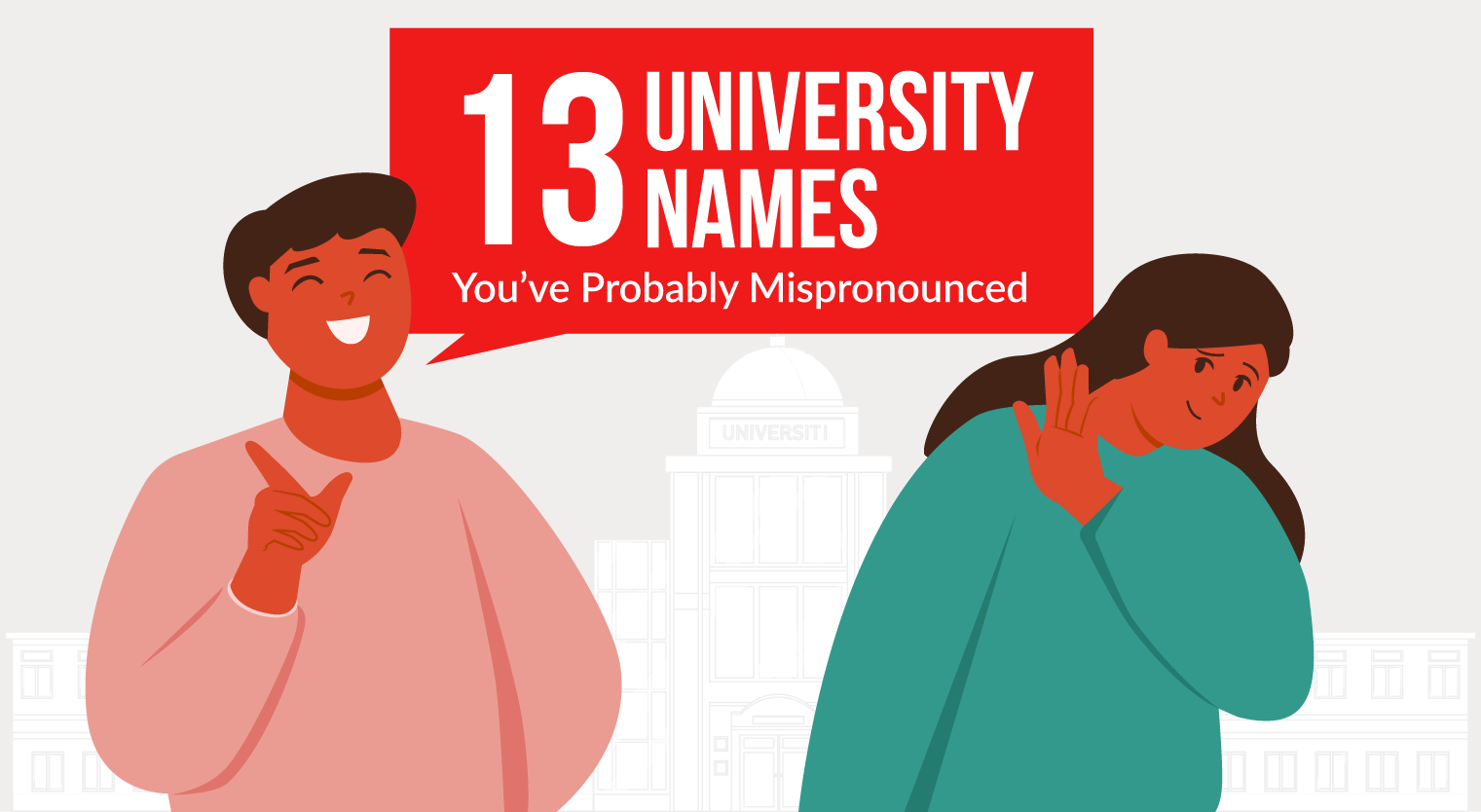Learning English? Here Are 7 Things You Should Know First
Should you care about accents? Here is some much needed advice for those seeking to improve their English.
Published 01 Oct 2021

English is one of the most widely spoken languages in the world. Even in Malaysia, knowledge of the language can significantly boost your employability and overall potential. So, it’s no wonder that everyone is striving to learn the language.
If you are one of these people, here’s some advice to get you started on the right track.
#1. Having a “posh” accent isn’t everything

Are you insecure about your accent? Do you often wish you could say “Apologies for my tardiness” instead of “Eh, sorry ya I’m late”?
Having a “posh” accent is the last thing you should worry about when learning a new language. Instead, you should concern yourself more with understanding the grammatical structure of the language and expanding your vocabulary.
Everyone has an accent so you will develop one eventually. In fact, it will come naturally, even if it’s not the “posh” accent that you had hoped for. If you insist on picking up the British accent, you can do so by consuming British media. However, it’s important that you remember that no accent is superior to the other.
#2. Big words are not that important

If you’re just starting out with English, you will probably feel tempted to pick up big, ambitious words like bifurcate, impediment and forbearance. There’s nothing wrong with wanting to use these and other big words — but it shouldn’t be a priority.
Yes, these words can make you sound smart but it can also be counter-productive. Picking up a language is already hard enough. You don’t need to add to that burden by specifically choosing to memorise words you can barely understand and use, let alone pronounce.
Again, this isn’t an argument against using big words. It’s just a reminder that you don’t need them to communicate effectively, especially when you’re just starting out with the language.
#3. Grammatical mistakes are normal

To a certain extent, yes, good grammar matters. But if you’re just starting out, having perfect grammar should not be a priority. After all, even native speakers make grammatical mistakes.
Even if you still struggle with certain aspects of English grammar, don’t let it stop you from speaking and writing in English. Ignore the grammar nazi. Language is all about communication so as long as you can communicate with English, everything else is of secondary concern.

#4. Fluency is not a sign of intelligence

So what if you can’t speak as fluently as a native speaker? It’s not your first language so there’s no need to pressure yourself into getting it right the first time.
People tend to conflate language fluency with intelligence but they are not the same thing. If they are, then you have to assume a 7 year-old native speaker of English is smarter than a professor whose first language is not English.
At the end of the day, English is just a medium of communication. Fluent or not, what matters is that you’re trying.
Apply for university with EduAdvisor
Secure scholarships and more when you apply to any of our 100+ partner universities.
Start now#5. Technology is your friend

People can be mean and this could be the reason why you’re wary about asking for help. However, this does not mean you have nowhere to turn to. Nowadays, in a world where there’s an app for almost everything, technology can be your best bet.
What do you struggle with? Online dictionaries can help with your pronunciation and definition. If you need to start from scratch, there are plenty of resources available online to teach you the basics of the language. You can head on to YouTube, Duolingo or even learn English on social media sites like TikTok.
So if you ever struggle with asking for help from other people, why not turn to machines? They definitely judge less.
#6. Don’t be afraid to practice

A lot of people feel discouraged from practising because they’re embarrassed that they’ll do it wrong. But to be better at a language, you have to use it.
Of course there are people who will make fun of you but pay them no heed. Practise away from them. Seek out supportive friends and talk to them in English. If you have someone who’s already good at the language, you can ask them to check for your mistakes.
If speaking is too big of a step to take, start small and write in English. Go on forums and make friends on social media. With practice, you will soon notice improvement in your English. Experience, after all, is the best teacher.

#7. Consistency is key

You’re probably tired of hearing this but it’s an oft-repeated one for a reason. Language is not something you can master after 6 hours of class. When you learn English, you’re learning about an entire culture.
To be fluent in this culture, you have to live it. Of course, this doesn’t actually mean going to an English-speaking country and living there (though that’s certainly an option if you have the resources). It just means you have to practise it as often as you can.
Talk and write in English, consume English media — there’s a variety of ways to incorporate the language into your life.
It’s not a competition. Everyone progresses differently.
Some may find picking up English as easy as ABC while others may struggle. Whichever type of English learner you are, always remember this advice.






